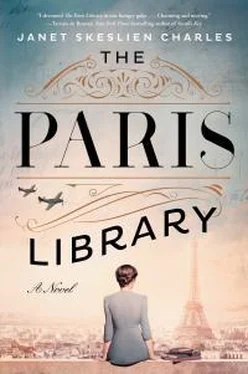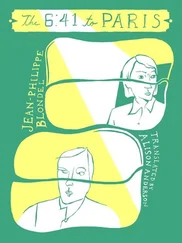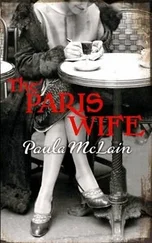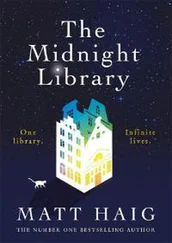Hearing the clip of high heels along the parquet, Paul and I both took a quick step back. Though we’d barely touched, every part of me—my skin, my blood, my bones—still felt him.
“There you are.” Miss Reeder glanced from me to Paul.
“Thank you, er, Mademoiselle Souchet,” he said. “Now I know where to find information on, er, the past participle.” He held up the grammar book and rushed from the room.
The Directress’s mouth twitched in amusement. “Miss Wedd is expecting you.”
“Miss Wedd?”
“It’s payday.”
Of course! Payday. How could I have forgotten?
“What will you do with your first month’s salary?”
“Do?” My mind was muddled.
“Of course, you’ll want to save most of it—having a nest egg is important, but it’s equally important to mark the occasion, perhaps to give a gift to those who’ve encouraged you along the way.”
“That’s very considerate.” I wished I’d come up with the idea on my own. “Who did you thank?”
“My mother and best friend—I treated them to novels,” she said. “Now please don’t keep Miss Wedd waiting.”
I joined the cheerful bookkeeper at her desk. Only two pencils in her bun tonight. “You were right about that Greek philosopher Heraclitus. I loved what he said about how ‘No man ever steps in the same river twice.’ ”
“The one thing we can count on is change,” she agreed.
She counted out my salary. Each franc represented victory when I answered a question, embarrassment when I floundered, days speaking a foreign language, nights reading in order to offer book recommendations. I knew I’d love my job but was surprised at how challenging it could be.
I tucked the bills into my pocket. This was the real reason I’d wanted the job: Money equaled stability. I refused to end up destitute and alone like Aunt Caroline.
THE FOLLOWING AFTERNOON, I went to the bank and deposited my salary, keeping a few francs as spending money. Next, I went to the train station to purchase two tickets to Fontainebleau, something for Rémy to thank him for his steadfast support. More than music and books, he loved tramping around the forest. I thought to give him the present at dinner, but he took only a few bites before slipping away.
“He doesn’t eat anything anymore,” Maman grumbled. “Doesn’t he like my cooking?”
Papa grasped her plump hand in his. “It was a fine meal.”
“These days, you prefer to dine out,” she said sharply.
“Now, Hortense,” he cajoled.
“Why don’t you go check on Rémy?” Maman told me.
He was at his desk, papers spread before him. I gave him the tickets, thinking he’d insist we go straightaway. But he just kissed my cheek absentmindedly. More and more, he was… gone. Even when he was with us, he wasn’t. I missed him. He didn’t say anything now, though he didn’t go back to writing his tract.
“Did you go to class today?”
“What’s the point of studying laws when no one respects them? Germany taking over Austria… Japanese soldiers marauding in China… The world’s gone crazy, and no one gives a damn.”
In a way, he was right. Skirmishes between subscribers felt more real to me than distant conflicts. Remembering the latest argument, I pinched a piece of paper in the middle and held it to my neck. “Here’s Mr. Pryce-Jones, with his paisley bow tie.” I moved the paper to my mouth. “And this is M. de Nerciat, with his woolly walrus mustache.”
Bow tie: “Rearmament is the way to go! We need to prepare for war.”
Mustache: “We need peace, not more guns.”
Bow tie: “Ostrich! Stop burying your head in the sand.”
Mustache: “Better an ostrich than a jackass. In the Great War—”
Bow tie: “Don’t know why you bang on about the war! The only thing that’s stayed the same is that awful haircut of yours.”
Rémy laughed.
“If you think that’s funny, you should catch a live show at the Library.”
“I’ve got a tight deadline for this article.”
“Come,” I cajoled. “You’ll see people do care.”
ThursDAY WAS STORY HOUR, my favorite event of the week. I loved watching little ones immersed in stories, the way I had with Aunt Caro. On my way there, I peeked into the reference room, hoping to see Paul. He wasn’t there. The Death of the Heart , 823. I told myself that he couldn’t visit the Library every day. Remembering our kiss, I touched my fingers to my lips. But maybe one day soon?
In the children’s room, I moved to the hearth, where a few mothers had gathered. Most chatted together, but one stood off to the side.
“Hello,” she said, fiddling with her pearl necklace. “Lovely to see you again.”
It was the lonely Englishwoman. Margot? No, Margaret.
“ The Priory was wonderful,” she continued. “I liked it so much that I checked out three other books by Mrs. Whipple. I wasn’t much of a reader before, but now I’m determined that my daughter and I will read together every day.”
“Which one is she?” I asked.
Margaret pointed to the blonde, who was sitting next to Boris’s little girl, Hélène. The girls spoke animatedly while waiting for Bitsi to begin, any moment now. I squinted at the clock above the doorway and was surprised to see Rémy enter. He skirted around the children to my side.
“I’m glad you came,” I told him.
“How could I resist after your one-woman play? I wanted to spend some time with you in your favorite place. We’ve both been so busy.…”
“You’re here now, that’s what counts.”
Perched on a stool, Bitsi flipped through the pages of a book. She cleared her throat, and the room went silent. Twenty tots inched closer to her. As she read Miss Maisy , Bitsi’s tone deepened, and her gaze hypnotized the audience. Enthralled, a boy touched her skirt, which billowed about her ballet slippers.
Glancing at Rémy, I saw that Bitsi had another fan—his eyes never left her face. When she finished, he clapped, and others joined in.
“So that’s your ‘bookmate,’ ” he said. “Is she really as well-read as you?”
“Probably even more.”
“She’s talented,” he said.
“She made the characters come alive.”
“No, she became the characters.” He strode to Bitsi’s side.
I followed.
“ Vous êtes magnifique ,” he said.
“ Merci ,” she whispered, gaze now glued to the floor.
Wanting to introduce him to Mr. Pryce-Jones and M. de Nerciat, I tugged on his sleeve. He didn’t notice.
“You must be parched,” he told her. “Would you like to go for a citron pressé ?”
It was the first time I’d seen him intent on a woman. At least six classmates had befriended me in order to meet him. Whenever I introduced him to a girl, he was polite, he listened, but never initiated a conversation.
I hoped Bitsi would accept his invitation. It wouldn’t hurt if she left work early, this once.
Bitsi placed her hand in the crook of his arm. He closed his eyes for a fraction longer than a blink, a silent Merci , before he escorted her out. Feeling forgotten, I tried to tell myself it was natural that Rémy was taken with her. They didn’t mean to leave me behind.
Boris tapped me on the back. “The good news,” he said, “is that we’re donating books.”
“What’s the bad?”
“There are over three hundred, and your job is sorting them.”
He handed me a list, and as I read the titles, I returned from the land of feeling sorry for myself. So Rémy’s visit hadn’t ended up as I’d expected. There would be another time.
“When I learned that the Library distributed thousands of books to universities, I found it admirable. Of course, that was before I was the one who packed them!” I joked.
Читать дальше







![Джанет Скеслин Чарльз - Библиотека в Париже [litres]](/books/391555/dzhanet-skeslin-charlz-biblioteka-v-parizhe-litres-thumb.webp)




